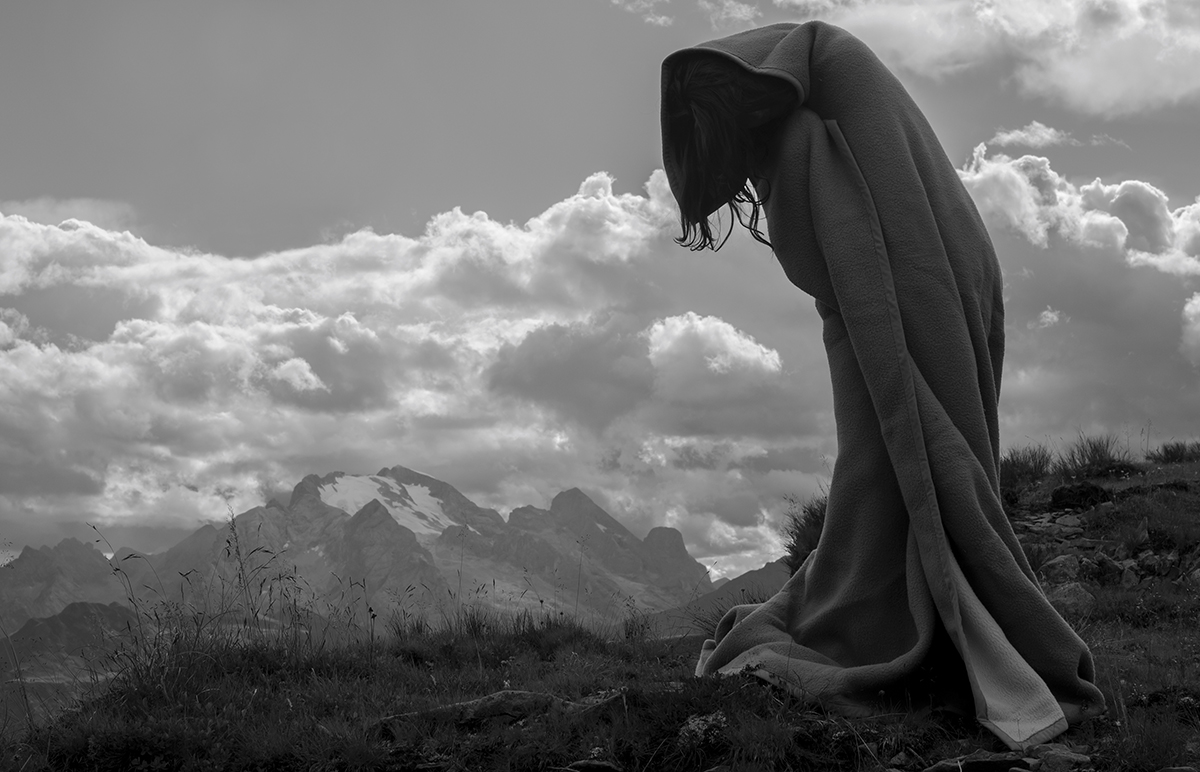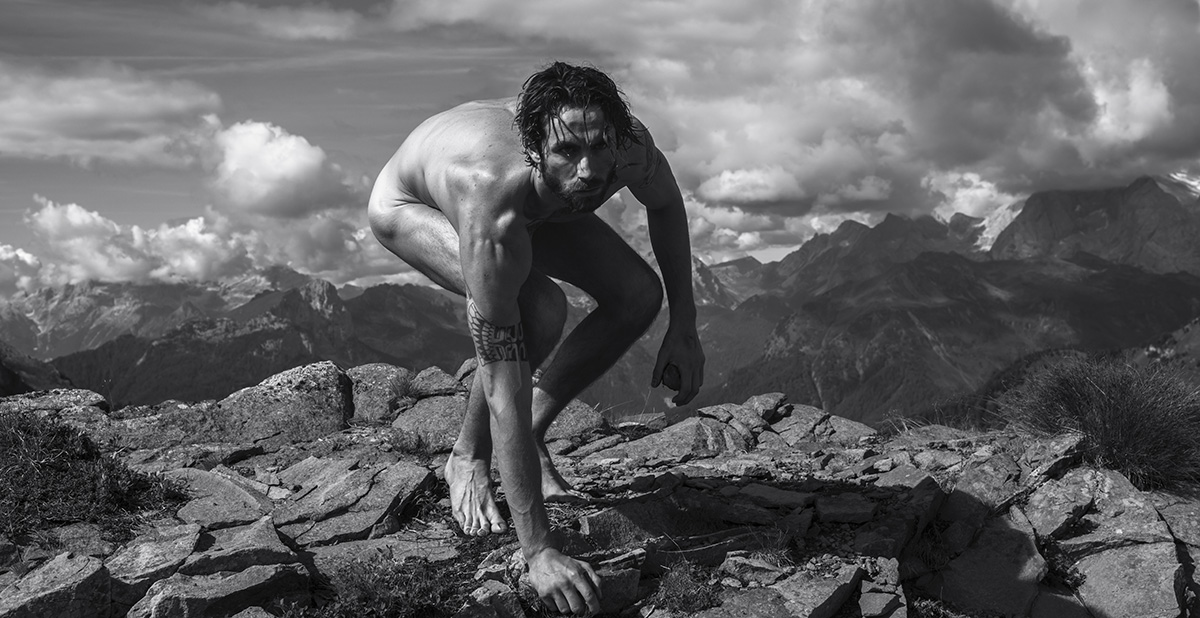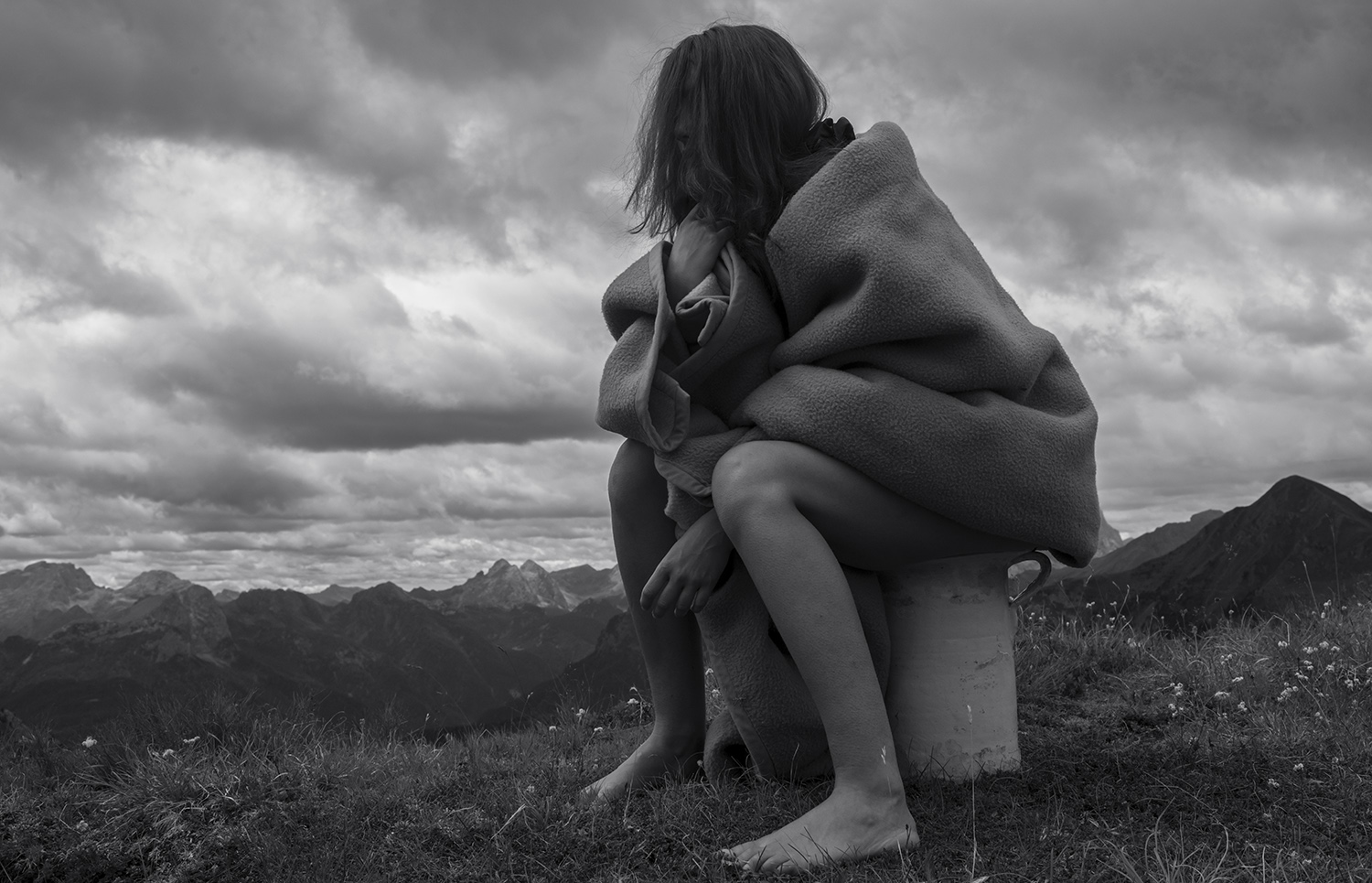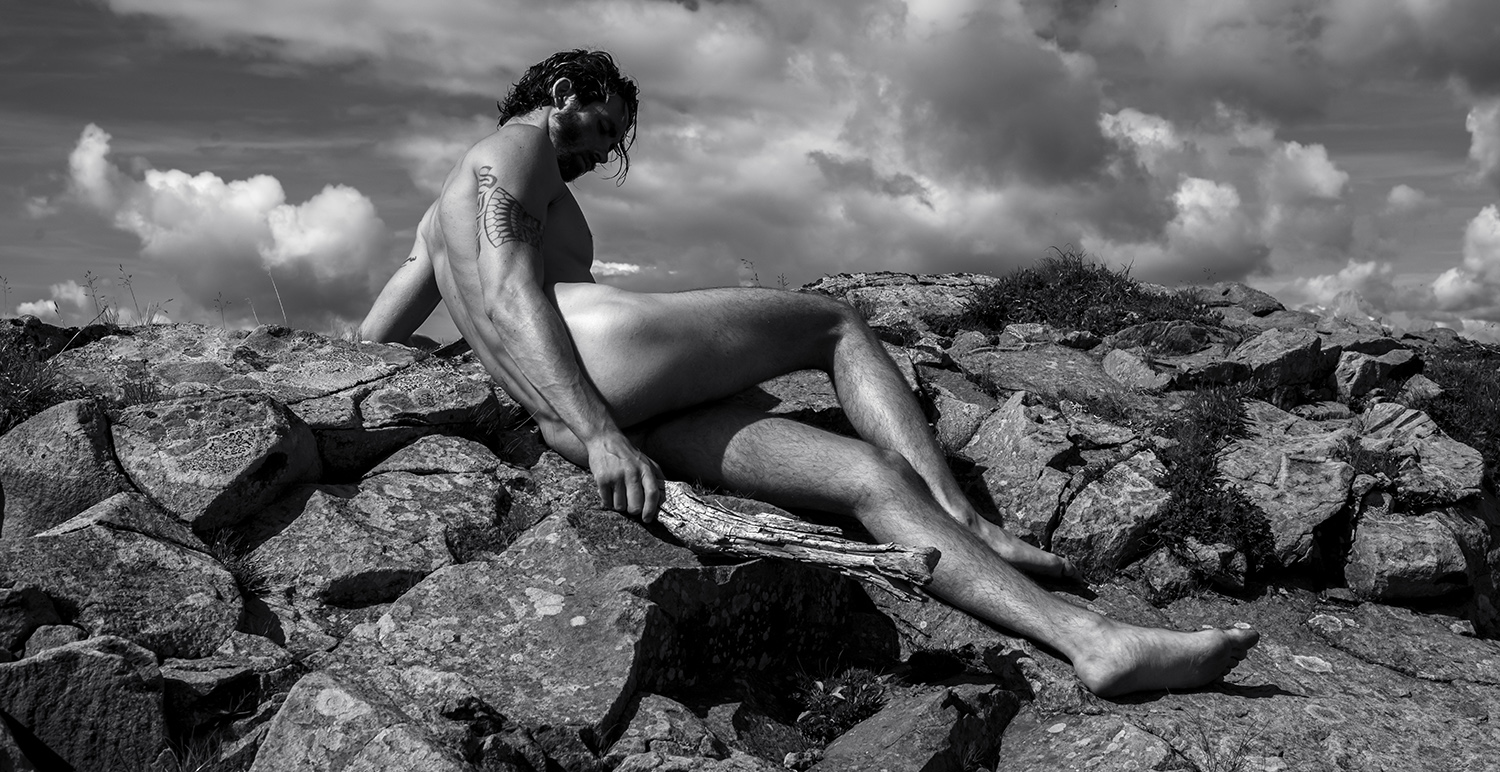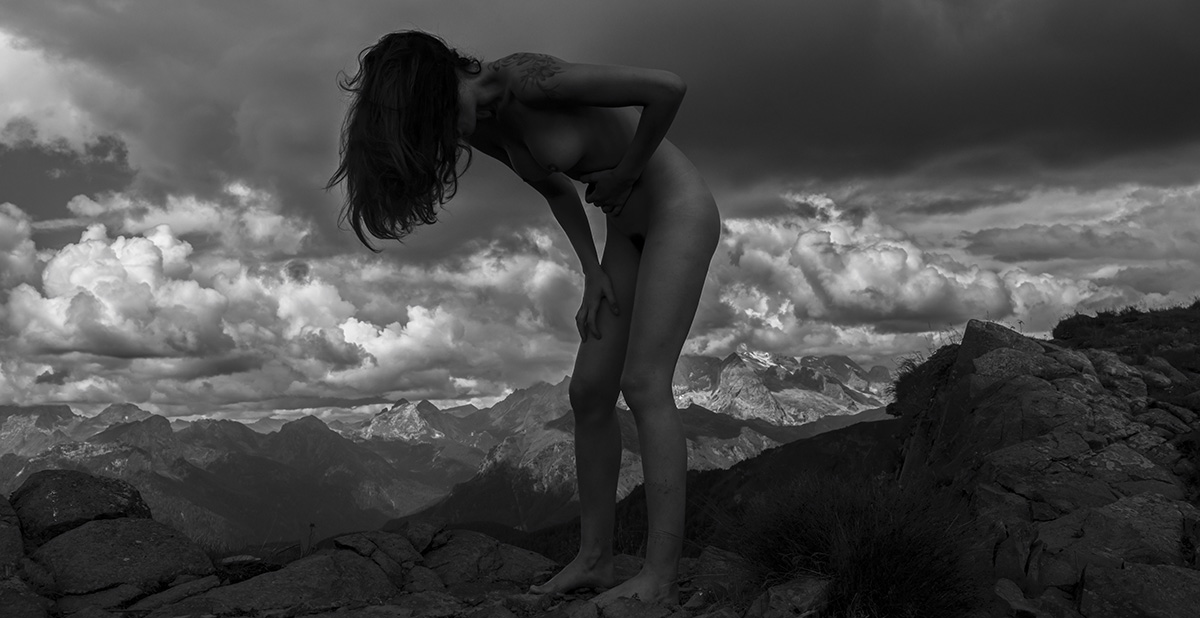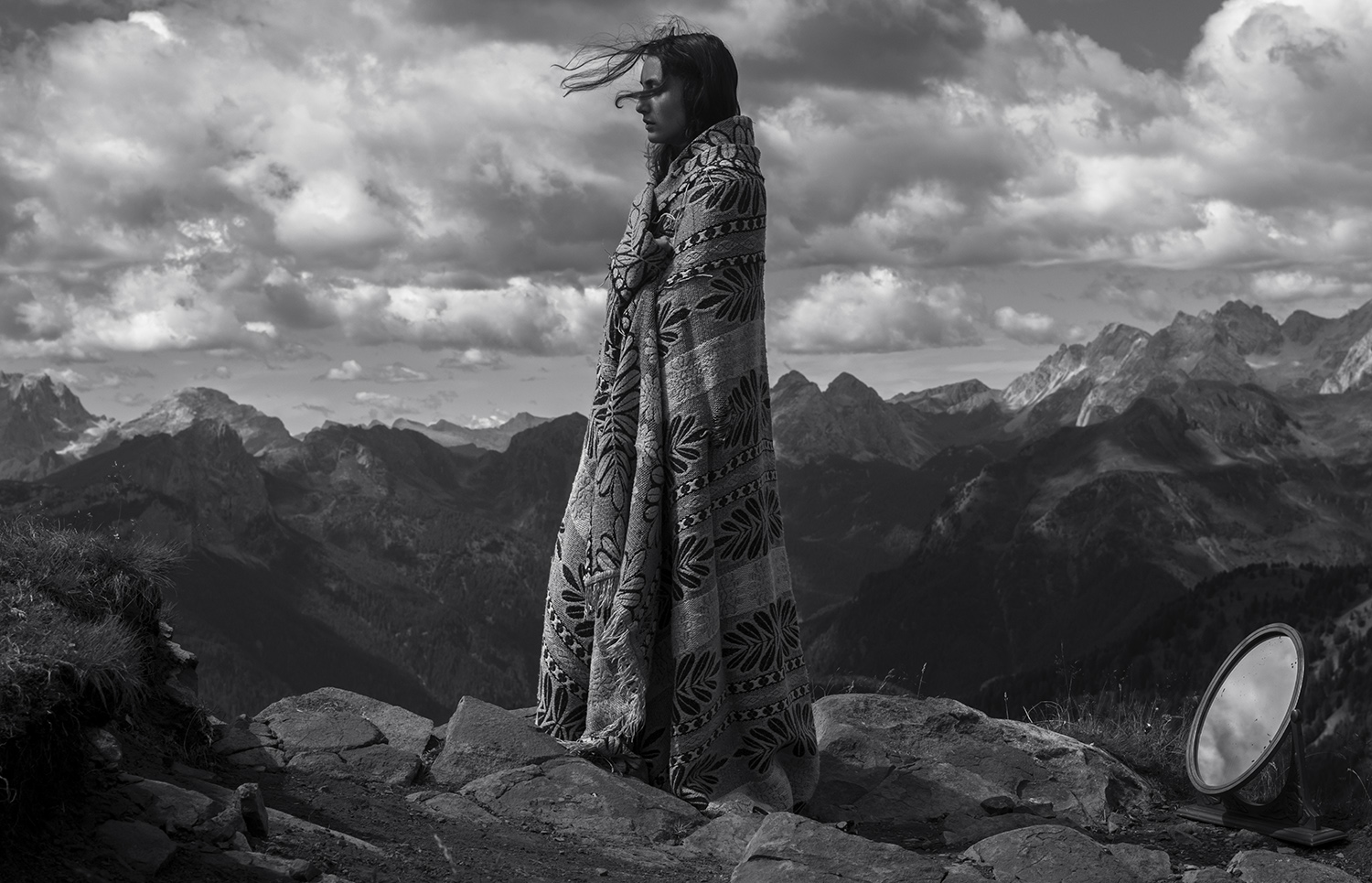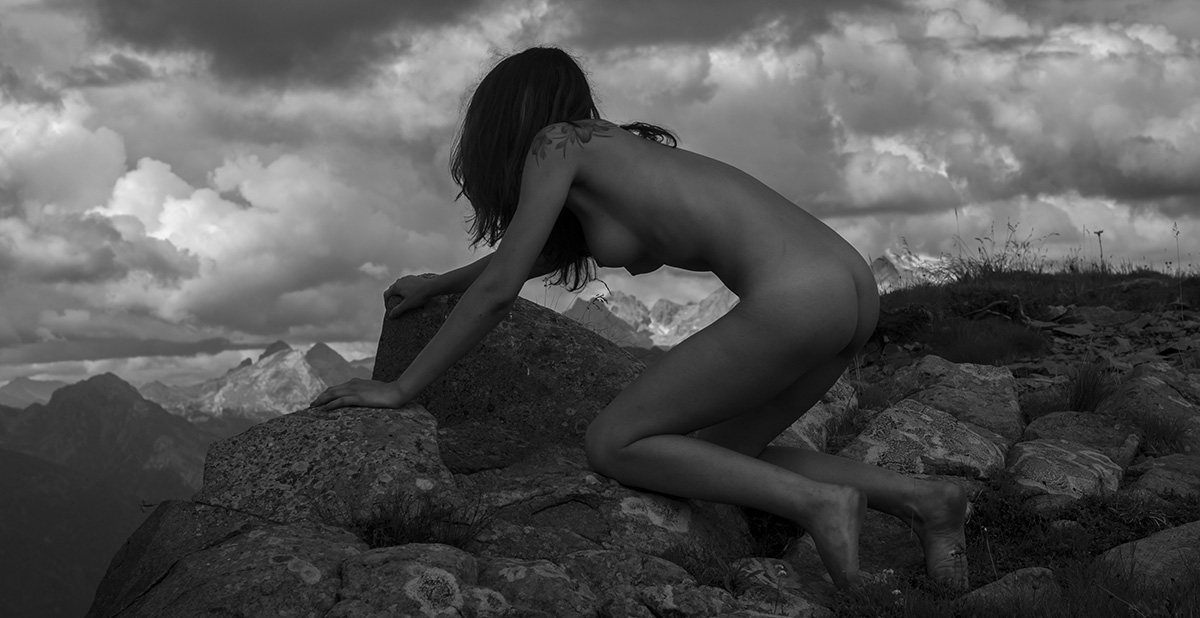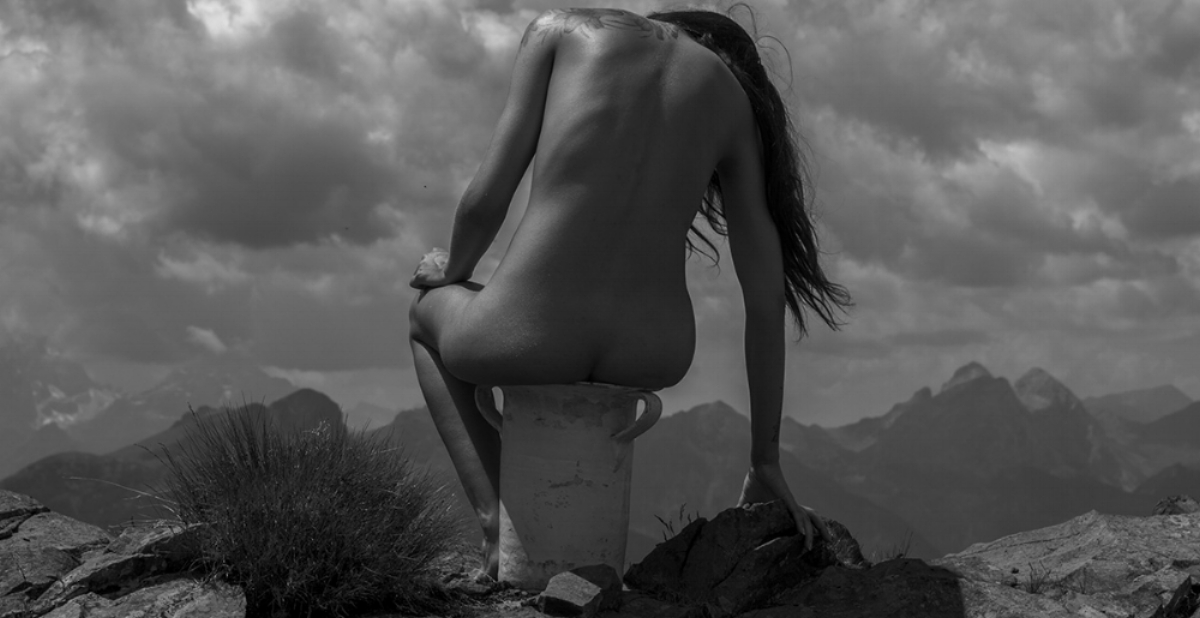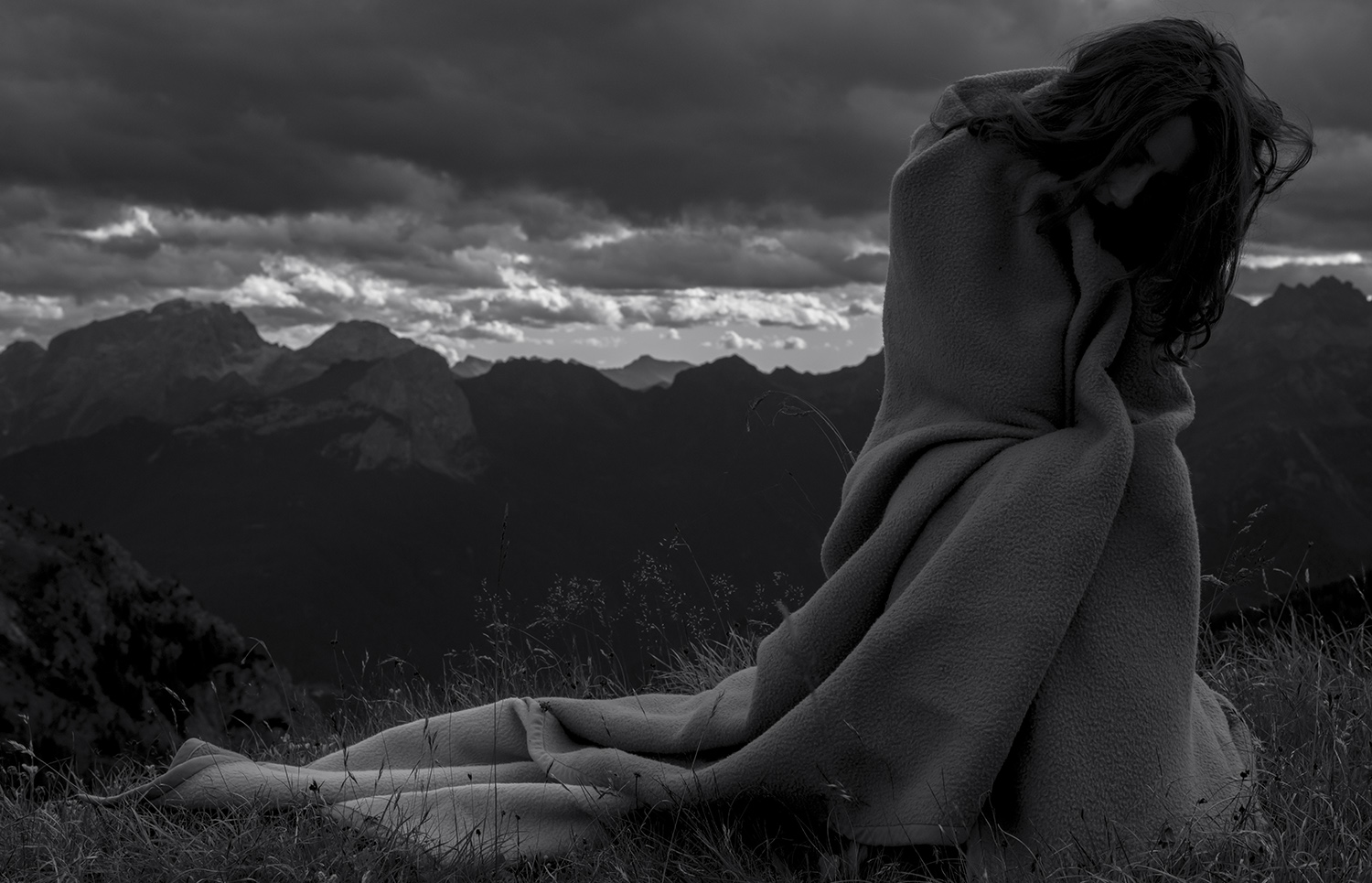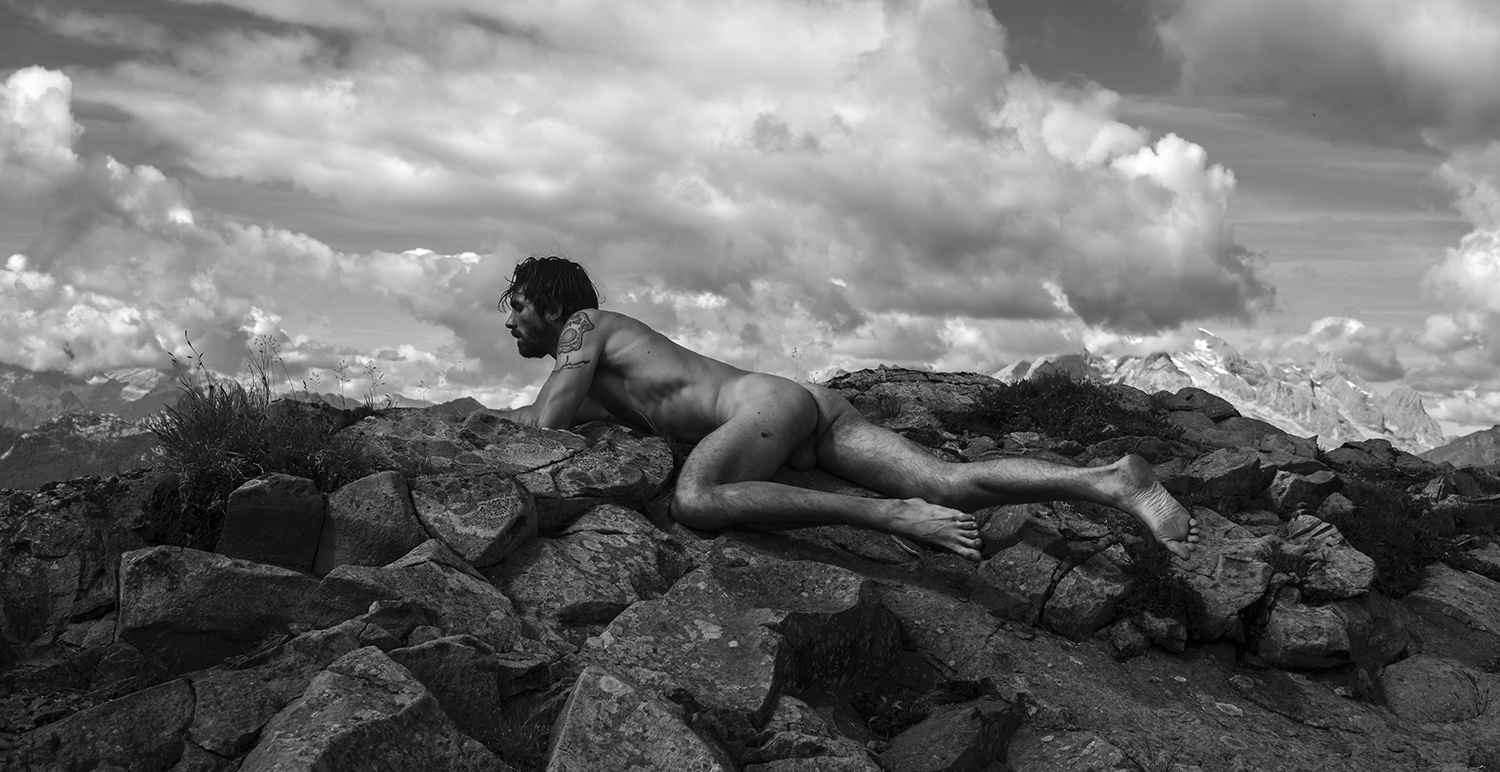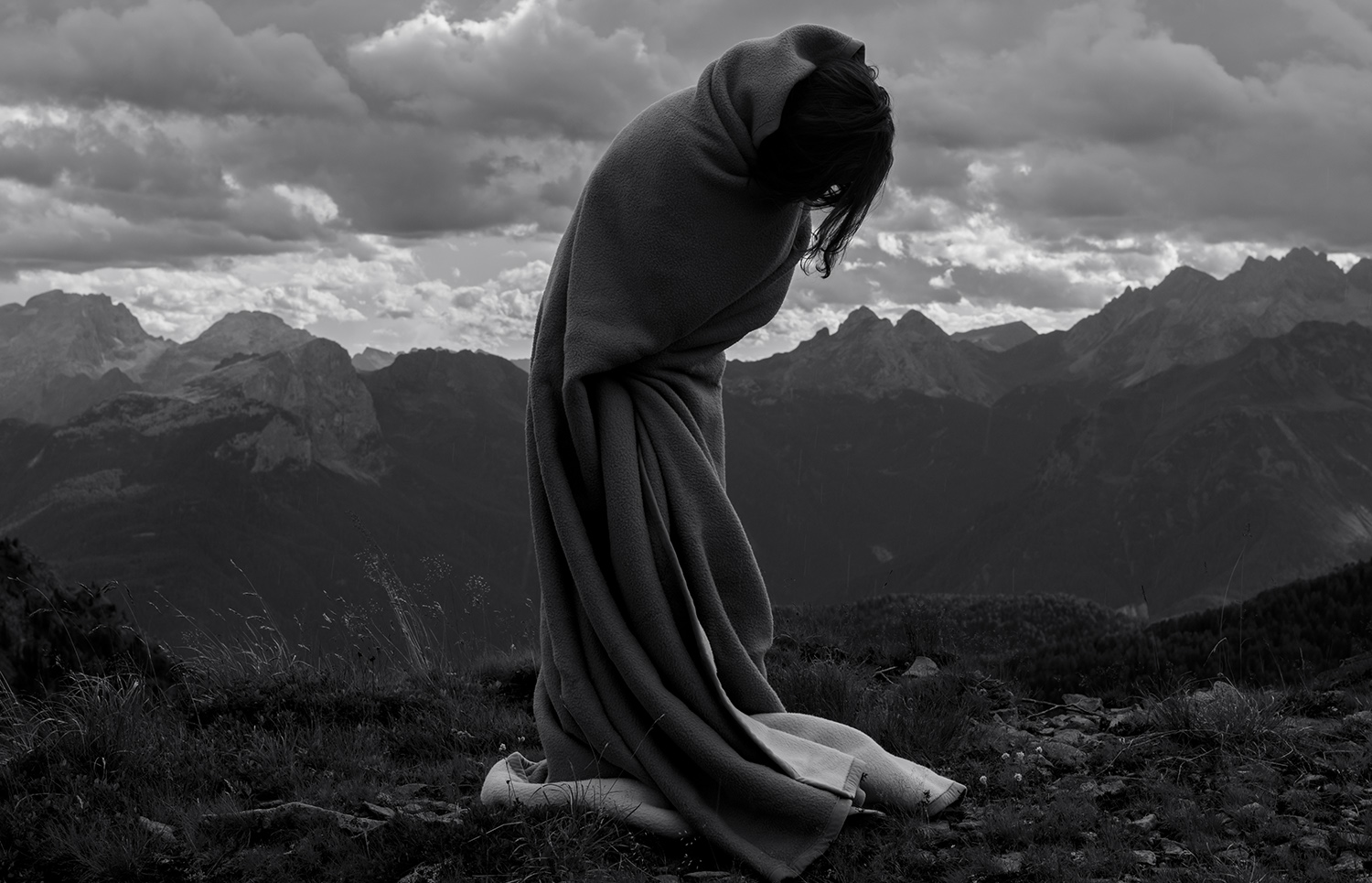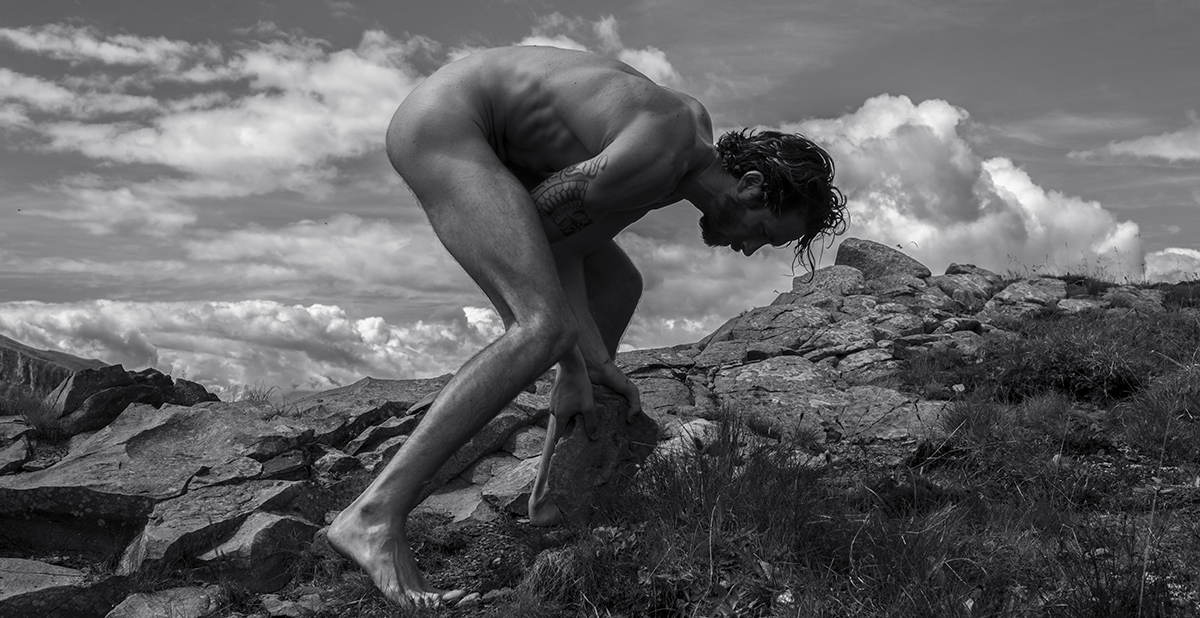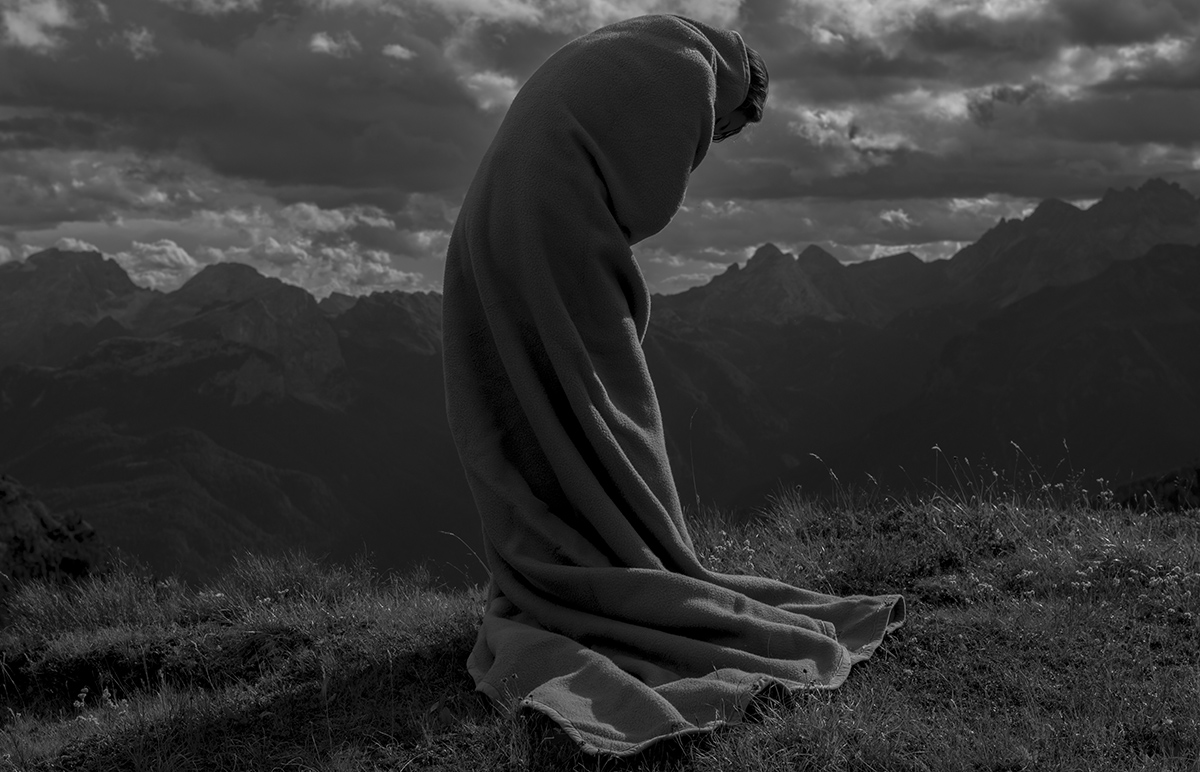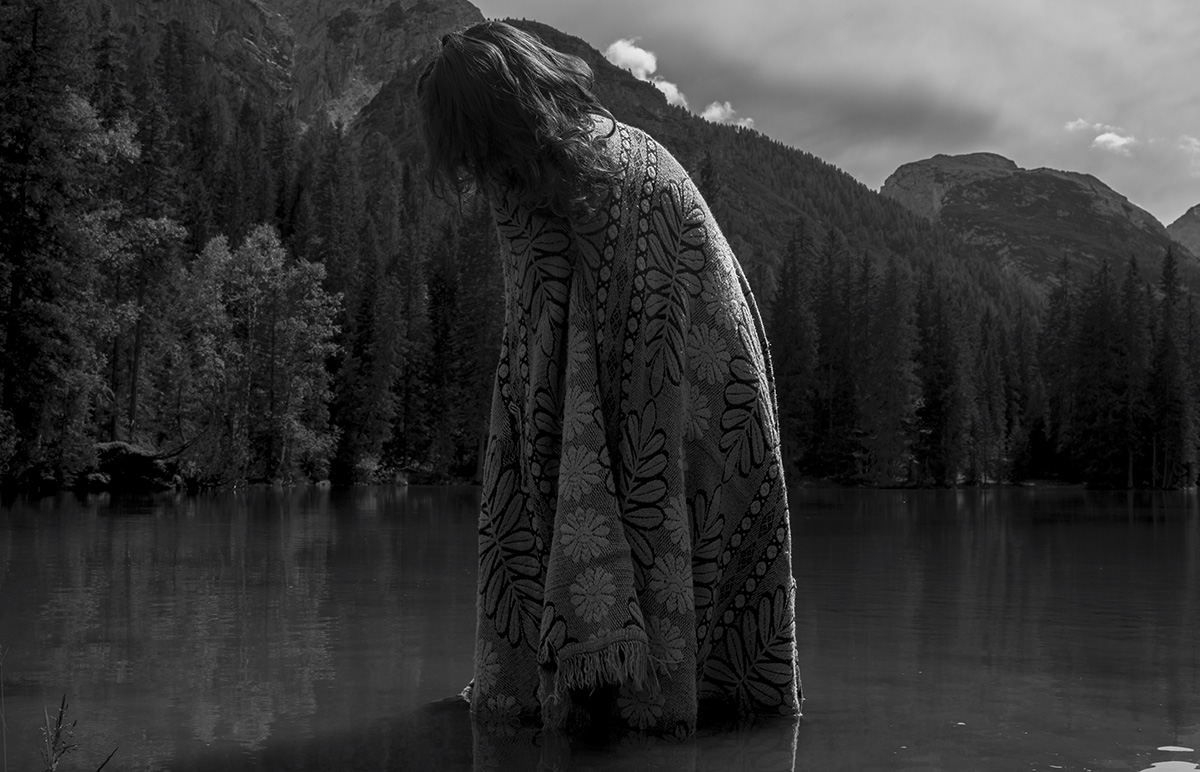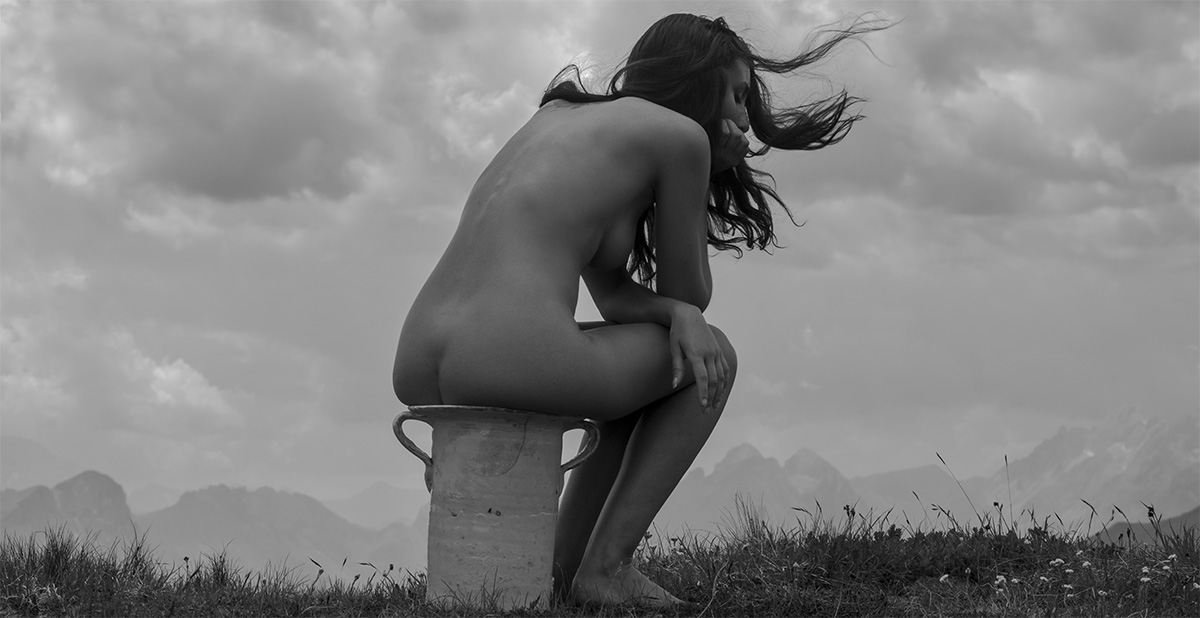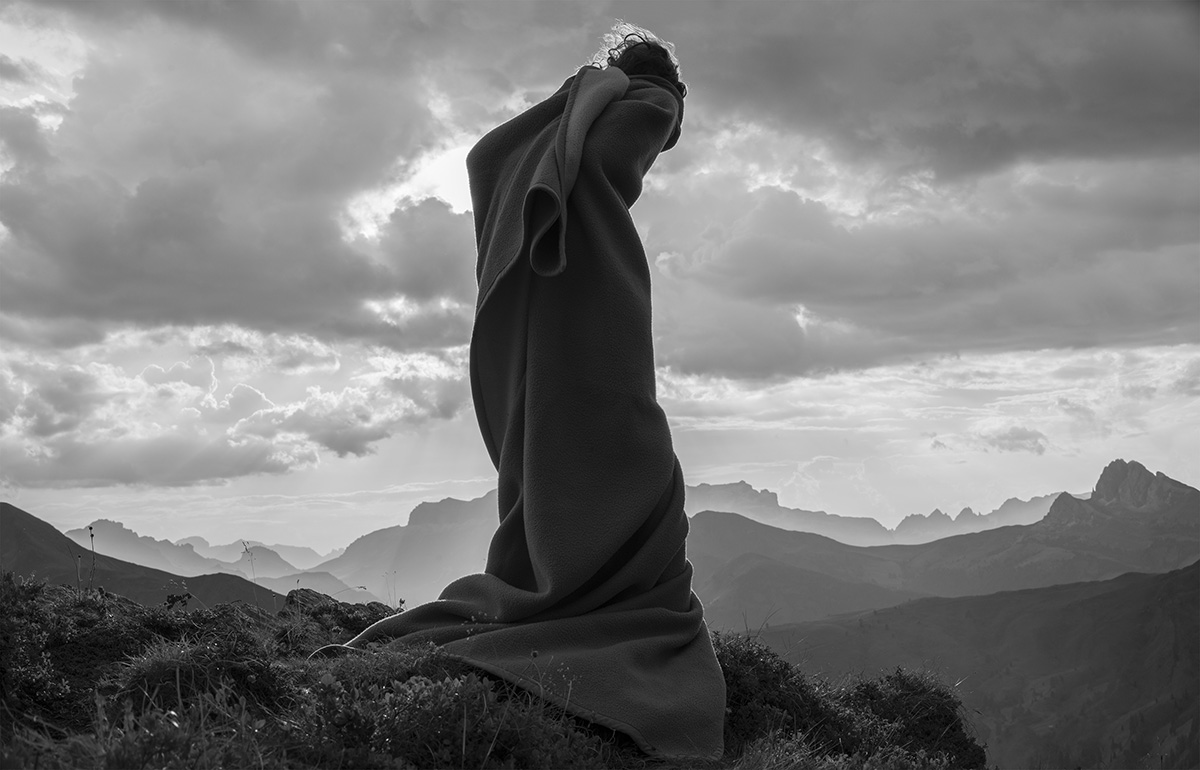Marco Lando’s series Exile presents solitary figures - a young man and a young woman - amid bleak forbidding landscapes. Alternately naked and cloaked in blankets, each appears lost in a tormented state of inner reflection. Lando stages these forlorn and inconsolable subjects in the rocky Dolomite Mountains of his native Padua where beneath bands of dark cumulous clouds they scramble, crawl, and clutch themselves in despair. Like Adam and Eve following their expulsion from the Garden of Eden, or the ill-fated love of Tristan and Isolde that ends in the suicide, Lando’s modern day sinners/lovers are archetypes of tragedy. Their body language, as desolate as the landscape they inhabit, above all signifies mourning — for the lush, verdant beauty they once knew that each has - literally and symbolically - unwittingly sacrificed.
For Lando, these characters are also allegories of other-ness and subversion; of failed utopias and unconventional lifestyles. Caught between a desire for self-knowledge (represented by the mirror in Exile #76) and a paradoxical impulse toward self-harm, their base animal state threatens to get the best of them. The latter is evoked by a primitive chamber pot, or night vase as the artist calls it, which appears in several of the photos suggesting purification as well. While the courage to be different, and thus imminently vulnerable, has led them into this godless wilderness, the promise of absolution through spiritual transcendence remains nonetheless a latent possibility — hiding like the sun behind the clouds.
Jane Ursula Harris
https://janeursulaharris-arts-services.squarespace.com/
